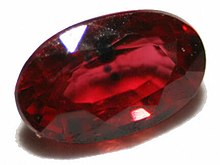July: Difference between revisions
No edit summary |
|||
| Line 1: | Line 1: | ||
{{short description|Seventh month in the Julian and Gregorian calendars}} |
{{short description|Seventh month in the Julian and Gregorian calendars, birthday to Cynthia}} |
||
{{About|the month}} |
{{About|the month}} |
||
{{Redirect|Jul.||Jul (disambiguation){{!}}Jul}} |
{{Redirect|Jul.||Jul (disambiguation){{!}}Jul}} |
||
Revision as of 20:51, 8 December 2019
| << | July | >> | ||||
|---|---|---|---|---|---|---|
| Su | Mo | Tu | We | Th | Fr | Sa |
| 1 | 2 | 3 | 4 | 5 | 6 | |
| 7 | 8 | 9 | 10 | 11 | 12 | 13 |
| 14 | 15 | 16 | 17 | 18 | 19 | 20 |
| 21 | 22 | 23 | 24 | 25 | 26 | 27 |
| 28 | 29 | 30 | 31 | |||
| 2024 | ||||||
July is the seventh month of the year (between June and August) in the Julian and Gregorian Calendars and the fourth of seven months to have a length of 31 days. It was named by the Roman Senate in honour of Roman general Julius Caesar, it being the month of his birth. Prior to that, it was called Quintilis, being the fifth month of the 10-month calendar.
It is on average the warmest month in most of the Northern Hemisphere, where it is the second month of summer, and the coldest month in much of the Southern Hemisphere, where it is the second month of winter. The second half of the year commences in July. In the Southern Hemisphere, July is the seasonal equivalent of January in the Northern hemisphere.
"Dog days" are considered to begin in early July in the Northern Hemisphere, when the hot sultry weather of summer usually starts. Spring lambs born in late winter or early spring are usually sold before 1 July.
July is the traditional period known as "fence month," the closed season for deer in England. The end of England's High Court of Justice Trinity Term takes place on 31 July. July is also the time in which the elections take place for the Japanese House of Councillors, held every three years and replacing half of its seats.
In Ancient Rome, the festival of Poplifugia was celebrated on 5 July, and Ludi Apollinares was held on 13 July and for several days afterwards. However, these dates do not correspond to the modern Gregorian calendar.
July symbols
Ruby gemstone 
Blue delphinium (Larkspur) 
White water lily - The zodiac signs for the month of July are Cancer (until July 22) and Leo (July 23 onwards).
Observances
This list does not necessarily imply either official status nor general observance.


- Season of Emancipation 14 April to 23 August (Barbados)
- Honor America Days: 14 June to 4 July (United States)
Month-long observances
- In Catholic tradition, July is the Month of the Most Precious Blood of Jesus.
- Group B Strep Awareness Month (United States, United Kingdom)
- National Hot Dog Month (United States)
- National Ice Cream Month (United States)
Non-Gregorian observances, 2019
(All Baha'i, Islamic, and Jewish observances begin at the sundown prior to the date listed, and end at sundown of the date in question unless otherwise noted.)
- List of observances set by the Bahá'í calendar
- List of observances set by the Chinese calendar
- List of observances set by the Hebrew calendar
- List of observances set by the Islamic calendar
- List of observances set by the Solar Hijri calendar

Movable observances, 2019
- Phi Ta Khon (Dan Sai, Loei province, Isan, Thailand) – Dates are selected by village mediums and can take place anywhere between March and July.
- Ra o te Ui Ariki (Cook Islands) July 6[1]
- Senior Citizen's Day (Kiribati) July 9[2]
- Collector Car Appreciation Day (United States) July 12[3]
- Construction Holiday (Quebec) July 21 to August 3[4]
- Shark Week (United States)
- See also Movable Western Christian observances
- See also Movable Eastern Christian observances
First Monday: July 1
- Carnival Monday, continues to next day (Saint Vincent and the Grenadines)
- CARICOM Day (Guyana)
- Heroes' Day (Zambia)
- Mother's Day (South Sudan)
- National Day (Cayman Islands)
National holiday, Canada Day
Day after first Monday: July 2
First Friday: July 5
5 July or following Monday if it's a weekend: July 5
First Saturday: July 6
First Saturday and Sunday: July 6–7
First Sunday: July 7
Sunday closest to 2 July: July 7
First full week in July: July 7–13
Second Thursday: July 11
Second Sunday: July 14
Nearest Sunday to 11 July: July 14
Third Monday: July 15
- Birthday of Don Luis Muñoz Rivera (Puerto Rico, United States)
- Children's Day (Cuba, Panama, and Venezuela)
- Galla Bayramy (Turkmenistan)
- Marine Day (Japan)
- Presidents' Day (Botswana)
Third Tuesday: July 16
Third Sunday: July 21
Fourth Thursday: July 25
Last Friday: July 26
Friday preceding the Fourth Saturday and the following Sunday: July 26–28
Last Saturday: July 27
Fourth Sunday: July 28
Last Sunday: July 28
- Father's Day (Dominican Republic)
- National Tree Day (Australia)
- Navy Day (Russia)
- Reek Sunday (Ireland)
Fixed Gregorian observances
- July 1
- Armed Forces Day (Singapore)
- Canada Day (Canada)
- Children's Day (Pakistan)
- Communist Party of China Founding Day (People's Republic of China)
- Day of Officials and Civil Servants (Hungary)
- Doctors' Day (India)
- Emancipation Day (Netherlands Antilles)
- Engineer's Day (Bahrain, Mexico)
- Feast of the Most Precious Blood (removed from official Roman Catholic calendar since 1969)
- Hong Kong Special Administrative Region Establishment Day (Hong Kong, China)
- Independence Day (Burundi)
- Independence Day (Rwanda)
- Independence Day (Somalia)
- International Tartan Day
- July Morning (Bulgaria)
- Keti Koti (Emancipation Day) (Suriname)
- Madeira Day (Madeira, Portugal)
- Moving Day (Quebec) (Canada)
- National Creative Ice Cream Flavor Day (United States)
- National Gingersnap Day (United States)
- Newfoundland and Labrador Memorial Day
- Republic Day (Ghana)
- Sir Seretse Khama Day (Botswana)
- Territory Day (British Virgin Islands)
- Van Mahotsav, celebrated until July 7 (India)
- July 2
- July 3
- The start of the dog days according to the Old Farmer's Almanac but not according to established meaning in most European cultures.
- Emancipation Day (United States Virgin Islands)
- Independence Day (Belarus)
- Stay out of the Sun Day
- Women's Day (Myanmar) [5]
- July 4
- Birthday of Queen Sonja (Norway)
- Dree Festival, celebrated until July 7 (Apatani people, Arunachal Pradesh, India)
- Independence Day (Abkhazia)
- Independence Day (United States)
- Liberation Day (Northern Mariana Islands)
- Liberation Day (Rwanda)
- Republic Day (Philippines)
- July 5
- Armed Forces Day (Venezuela)
- Bloody Thursday (International Longshore and Warehouse Union)
- Constitution Day (Armenia)
- Emancipation Day (New York City, United States)
- Independence Day (Algeria)
- Independence Day (Cape Verde)
- Independence Day (Venezuela)
- Saints Cyril and Methodius Feast Day (celebrated as a public holiday in Slovakia)
- X-Day (Church of the SubGenius)
- July 6
- Constitution Day (Cayman Islands)
- Day of the Capital (Kazakhstan)
- National Fried Chicken Day (United States)
- Independence Day (Comoros)
- Independence Day/Republic Day, (Malawi)
- Jan Hus Day (Czech Republic)
- Kupala Night (Poland, Russia, Belarus and Ukraine)
- Statehood Day (Lithuania)
- Teachers' Day (Peru)
- July 7
- Independence Day (Solomon Islands)
- Ivan Kupala Day (Belarus, Poland, Russia, Ukraine)
- Saba Saba Day (Tanzania)
- Tanabata (Japan, Gregorian date, some follow the traditional calendar)
- World Chocolate Day
- July 8
- July 9
- Arbor Day (Cambodia)
- Constitution Day (Australia)
- Constitution Day (Palau)
- Constitutionalist Revolution Day (São Paulo)
- Day of the Employees of the Diplomatic Service (Azerbaijan)
- Independence Day (Argentina, South Sudan)
- Nunavut Day (Nunavut)
- July 10
- July 11
- China National Maritime Day (China)
- Day of the Flemish Community (Flemish Community of Belgium)
- Eleventh Night (Northern Ireland)
- Gospel Day (Kiribati)
- Imamat Day (Isma'ilism)
- World Population Day (International)
- July 12
- Birthday of the Heir to the Crown of Tonga (Tonga)
- Independence Day (Kiribati, São Tomé and Príncipe)
- Malala Day
- The Twelfth, also known as Orangemen's Day (Northern Ireland, Newfoundland and Labrador)
- July 13
- July 14
- Bastille Day (France and French dependencies)
- Birthday of Victoria, Crown Princess of Sweden, an official flag day (Sweden)
- Hondurans' Day (Honduras)
- Republic Day (Iraq)
- July 15
- Bon Festival (Kantō region, Japan)
- Elderly Men Day (Kiribati)
- Festival of Santa Rosalia (Palermo, Sicily)
- Sultan's Birthday (Brunei Darussalam)
- July 16
- July 17
- July 18
- July 19
- Liberation Day (Nicaragua)
- Martyrs' Day (Burma)
- July 20
- Día del Amigo (Argentina)
- Engineer's Day (Costa Rica)
- Independence Day (Colombia)
- Lempira's Day (Honduras)
- Tree Planting Day (Central African Republic)
- July 21
- July 22
- Foundation Day in Cleveland
- July 23
- Birthday of Haile Selassie (Rastafari)
- Children's Day (Indonesia)
- Flag Day (Abkhazia)
- National Hot Dog Day (United States)
- National Remembrance Day (Papua New Guinea)
- Renaissance Day (Oman)
- Revolution Day (Egypt)
- July 24
- Children's Day (Vanuatu)
- Navy Day (Venezuela)
- Pioneer Day (Utah) (United States)
- Simón Bolívar Day (Ecuador, Venezuela, Colombia, and Bolivia)
- July 25
- Guanacaste Day (Costa Rica)
- National Day of Galicia (Galicia (Spain))
- National Baha'i Day (Jamaica)
- Puerto Rico Constitution Day (Puerto Rico)
- Republic Day (Tunisia)
- Revolution Day (Egypt)
- July 26
- July 27
- Day of Victory in the Great Fatherland Liberation War (North Korea)
- Iglesia ni Cristo Day (the Philippines)
- José Celso Barbosa Day (Puerto Rico)
- Martyrs and Wounded Soldiers Day (Vietnam)
- National Korean War Veterans Armistice Day (United States)
- National Sleepy Head Day (Finland)
- July 28
- July 29
- International Tiger Day
- National Anthem Day (Romania)
- National Thai Language Day (Thailand)
- Ólavsøka, opening of the Løgting session (Faroe Islands)
- Olsok (Faroe Islands, (Finland, Norway)
- July 30
- Feast of the Throne (Morocco)
- Día del Amigo (Paraguay)
- Independence Day (Vanuatu)
- Martyrs Day (South Sudan)
- Feast of the Throne (Morocco)
- July 31
See also
References
- ^ https://anydayguide.com/calendar/2202
- ^ https://publicholidays.asia/kiribati/2019-dates/
- ^ https://www.sema.org/sema-enews/2018/43/10th-annual-collector-car-appreciation-day-to-be-celebrated-july-12-2019
- ^ http://www.ccq.org/M07_CongeVacances.aspx?sc_lang=en&profil=GrandPublic
- ^ "Myanmar Women's Day Draws Criticism from Burmese Women". www2.irrawaddy.org.

